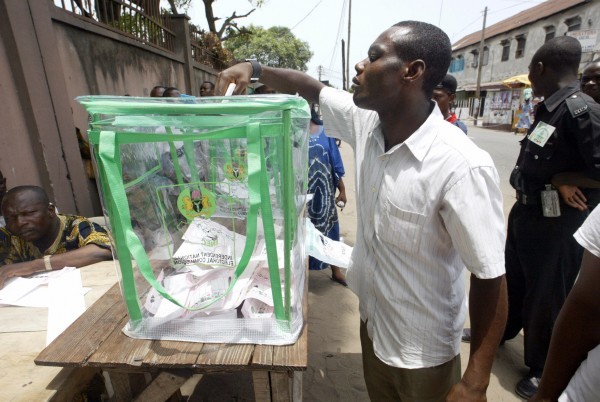Political participation and good governance: The Nigerian experiment

By James Ojo
Political participation is the cornerstone of every nation laying claim to true democracy. It is the offshoot of increased realisation on the part of the electorate that the growth or underdevelopment of their nations is determinative of their willingness to ensure the right things are done. These include active participation in voting process, penchant to hold elected leaders accountable and determination to challenge authorities — through peaceful protests and lobbying — when the right things are not being done.
In reality, no nation can attain meaningful development without active political participation of the people in governance as there is high tendency of leaders abusing power in office. The age-long saying that “the power in the people is greater than the people in power” is indicative of the fact that the people remains the “Alpha and Omega” of every democratic dispensation.
Yet, in Nigeria, the reality is the opposite. The country’s political landscape has been dominated by the few elites for so long that it now appears odd for the masses to demand their rightful place in the polity. The situation, of course, is due to many factors, prominent among which is poverty. Poverty is a big problem in Nigeria. It’s a multifaceted problem that successive and present administrations have been grappling with, albeit without any meaningful progress. That Nigeria is currently the poverty capital of the world will not come as a surprise to many.
With the dawn of the coronavirus pandemic, the situation has become even unbearable: poverty is increasing at an alarming while employment opportunities are shrinking dramatically. Nigeria is shambles, with no ‘messiah’ in sight. Amid the rising poverty level, government is taking far-reaching measures to save itself in the face of an impending economic doom occasioned by the pandemic. The recent hike in electricity tariff and fuel price easily comes to mind. What it appears, though, is that we should brace up for tougher days ahead. The ‘Next Level’ agenda of the All Progressives Congress (APC) and President Muhammadu Buhari is taking Nigerians to an entirely different terrain, which, of course, is least expected of an administration that promised so much but has so far failed to bridge expectations.
The concern, however, is the short and long-term implications of the surging hardships in the land on the country’s socio-political landscape. Over the years, Nigeria’s politics has been defined by ideals that are inimical to societal growth and generally stifle the emergence of good governance. There’s ethnicity, monetisation of electoral process, religion and poverty. In Nigeria for instance, many believe prayer, not good governance, is the quick fix for quality education, infrastructural development and provision of other basic amenities essential for good life. I feel sorry for my beloved nation and Africa as a continent, when recently, l stumbled on a viral video of people staging prayer session to seek God’s intervention over bad road in their area.
There’s also the problem of ethnicity wherein our choice of leaders during elections is based on the origin, not ability, of political aspirants. In all of these, poverty, arguably, appears to be the connecting bridge. For instance, an hungry man will really see no need to engage in critical discussions about good governance, when food is his basic problem. These factors have birthed a situation where the citizens place fleeting benefits over the quest for good governance.
However, with the worsening economic situation in the country and the masses determined to eke out a living against all odds, we could witness even more docility on the part of Nigerians in the coming days. The greatest beneficiaries of such situation, of course, are the elites, who have continued to hold unto such situation to control the masses.
The ongoing trends in Edo and Ondo states ahead of the governorship polls, are symptomatic of the fact that nothing will change anytime soon. As of August 27, for instance, the Independent National Electoral Commission (INEC) revealed that of the 2.2 million registered voters in the Edo State, only 1.72 million collected their Permanent Voter Cards (PVCs). That a staggering 484,000 people who did not collect their PVCs is worrisome and further speaks volume of Nigerians’ apathy to engage in the process of determining who gets into office. The revelation by YIAGA Africa, a civil society organisation, that politicians are buying voter cards ahead of the September 19 election is another evidence of our regressing democracy. In Ondo state, the situation is not entirely different. The political atmosphere has so far been riddled with deeply-rooted issues that have plagued our electoral process for long. These ugly experiences clearly show that our politicians will not change, as long as they have the masses at their beck and call to achieve sinister objectives.
Any meaningful change in Nigeria will begin with the masses. It will start with the realisation on their part that no country can pray its way to greatness and that they need to be actively involved in issues concerning governance to bring about the desired change in Nigeria. On October 1, Nigeria will celebrate its 60th independence anniversary. But as the nation gravitates towards another ‘milestone’ in terms of its years of existence, there’s no corresponding progress on ground. The narrative will remain the same for long, except the masses take up the gauntlet to chart a new course forward in the system.


